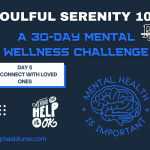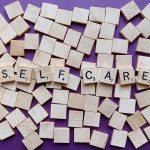Relationships are the cornerstone of human existence, shaping the way we experience the world. From family and friendships to romantic partnerships, these connections play a pivotal role in our lives. However, building and maintaining strong and healthy relationships is no small feat. It demands effort, effective communication, and a deep understanding of both oneself and others. In this comprehensive guide, we will explore the essential principles and strategies for fostering robust and flourishing relationships.
The Foundation of Healthy Relationships
The journey towards building strong relationships begins with self-awareness. Understanding our own thoughts, emotions, and motivations is fundamental to connecting genuinely with others.
Cultivate self-awareness with these practices:
- Journaling: Dedicate time each day to write down your thoughts and feelings. This practice can offer valuable insights into your inner world.
- Meditation: Embrace mindfulness meditation to enhance your awareness of your thoughts and emotions, enabling you to respond more thoughtfully.
- Seek feedback: Request honest feedback from trusted friends or family members to gain a deeper understanding of your strengths and areas for growth.
Communication: The Bridge to Connection
Effective communication is the lifeblood of healthy relationships. It encompasses not only expressing thoughts and emotions but also active listening, empathy, and respect for one another.
Tips for fostering effective communication:
- Practice active listening: Give your full attention to the speaker, ask clarifying questions, and show empathy by acknowledging their emotions.
- Use “I” statements: Shift from accusatory language (e.g., “You make me feel…”) to owning your feelings (e.g., “I feel…”). This promotes open dialogue and minimizes defensiveness.
- Avoid blame and criticism: Focus on addressing the issue at hand rather than attacking the person. Use constructive language to tackle problems.
Boundaries: The Guardrails of Connection
Establishing and respecting boundaries is crucial in cultivating healthy relationships. Boundaries define acceptable and unacceptable behaviors within a relationship, minimizing misunderstandings and conflicts.
Steps to set and maintain boundaries:
- Identify your personal boundaries: Reflect on your values, needs, and limits to establish clear boundaries.
- Communicate your boundaries: Assertively communicate your boundaries to others, emphasizing respect and understanding.
- Respect others’ boundaries: Just as you expect respect for your boundaries, reciprocate the same consideration for others.
Building Strong Relationships
Trust is the foundation upon which strong relationships are built. It requires time, consistency, and a track record of reliability.
Strategies to build and maintain trust:
- Be honest and transparent: Always prioritize truthfulness, even in challenging situations.
- Keep promises: If you make a commitment, ensure you follow through on it consistently.
- Show reliability: Demonstrate your dependability by being there for the people you care about.
Empathy: The Bridge to Understanding
Empathy is the ability to understand and share the feelings of others. It is a cornerstone of emotional intelligence and a vital component of building strong connections.
Cultivate empathy through these actions:
- Practice active listening: Make a concerted effort to grasp others’ perspectives and feelings.
- Put yourself in their shoes: Imagine how you would feel in their situation to foster a deeper understanding.
- Offer support: Demonstrate your concern for their well-being and be ready to lend a helping hand when necessary.
Compromise: The Art of Collaboration
Inevitably, conflicts and differences arise in any relationship. The ability to compromise is essential for resolving disagreements and finding mutually acceptable solutions.
Tips for effective compromise:
- Prioritize the relationship: Understand that maintaining a healthy relationship takes precedence over “winning” an argument.
- Be flexible: Be open to different viewpoints and willing to adjust your own stance.
- Seek common ground: Identify areas of agreement as a starting point for conflict resolution.
Nurturing Different Types of Relationships
Family relationships are often the bedrock of our support systems, but they can also present unique challenges. Building strong family relationships requires patience, empathy, and a commitment to preserving bonds.
Strategies for nurturing healthy family relationships:
- Open communication: Address issues directly and honestly within the family unit.
- Set boundaries: Establish clear boundaries to maintain a healthy balance between independence and closeness.
- Practice forgiveness: Release grudges and past conflicts to promote healing and growth within the family.
Friendships: The Joy of Companionship
Friendships provide companionship, emotional support, and shared experiences. Cultivating and maintaining meaningful friendships involves dedicated effort.
Build and sustain friendships with these actions:
- Invest time and effort: Prioritize spending quality time with friends and express your appreciation for their presence in your life.
- Be a good friend: Offer support, lend a listening ear, and be present in times of need.
- Resolve conflicts constructively: Tackle disagreements honestly and respectfully to strengthen the friendship.
Romantic Relationships: The Fusion of Hearts
Romantic relationships blend love, passion, and intimacy, offering unique rewards and challenges. To keep these relationships vibrant, continuous effort is essential.
Keys to a healthy romantic relationship:
- Communication and honesty: Maintain open and honest communication to resolve conflicts and sustain intimacy.
- Intimacy and connection: Cultivate emotional and physical intimacy to keep the romance alive.
- Quality time together: Dedicate meaningful time to strengthen your bond.
Overcoming Challenges
Conflict Resolution: Navigating Stormy Waters
Conflict is a natural component of any relationship. The health of a relationship is not determined by the presence of conflict but by how it is managed and resolved.
Steps for effective conflict resolution:
- Stay calm: Avoid escalating conflicts with anger or hostility.
- Listen actively: Strive to understand the other person’s perspective.
- Find common ground: Seek solutions that address both parties’ needs.
Dealing with Toxic Relationships: Recognizing and Responding
Not all relationships are healthy, and it’s vital to identify and address toxic ones. Toxic relationships can be emotionally damaging and detrimental to your well-being.
Signs of a toxic relationship:
- Constant negativity and criticism
- Manipulative behavior
- Disregard for boundaries
- Emotional or physical abuse
Steps to address toxic relationships:
- Set boundaries: Clearly communicate your boundaries and limits.
- Seek support: Share your concerns with friends, family, or a therapist for guidance and support.
- Consider ending the relationship: If the relationship remains harmful, it may be necessary to distance yourself or terminate it.
Long-Distance Relationships: Nurturing Love Across Distances
Maintaining a strong and healthy long-distance relationship presents unique challenges but is possible with dedication and effective communication.
Tips for successful long-distance relationships:
- Prioritize communication: Make regular, meaningful contact a priority in your relationship.
- Plan visits: Arrange in-person visits to spend quality time together.
- Maintain trust: Trust becomes even more critical in long-distance relationships; hence, open and honest communication is vital.
Self-Care and Relationships
While nurturing relationships is crucial, self-care is equally vital. Neglecting your own well-being can hinder your ability to contribute positively to your connections.
Self-care practices:
- Maintain physical health: Prioritize nutrition, exercise, and adequate sleep.
- Nurture emotional well-being: Practice mindfulness and self-compassion to enhance your mental health.
- Pursue passions: Engage in activities and hobbies that bring you joy and fulfillment.
Seeking Professional Help: A Path to Healing
In some instances, relationship challenges may require the guidance of a trained therapist or counselor. Seeking professional help is a responsible step toward improving relationship health.
When to consider professional help:
- Persistent conflicts: Conflicts that resist resolution through communication alone.
- Emotional or psychological issues: Issues impacting the relationship that require expert intervention.
- Crisis situations: Such as infidelity or severe trust issues that demand specialized assistance.
Conclusion
Building and maintaining strong and healthy relationships is an ongoing journey that demands continual effort, self-awareness, and a commitment to personal and relational growth. By practicing effective communication, establishing boundaries, nurturing empathy and trust, and embracing adaptability, you can forge meaningful connections with family, friends, and romantic partners.
Every relationship is unique, and there’s no one-size-fits-all approach. What matters most is the genuine effort and love you invest in your connections. As you embark on this lifelong journey, you will not only fortify your bonds with others but also enrich your own life in countless ways. May your path be marked by love, authenticity, and the enduring strength of connections that stand the test of time.




